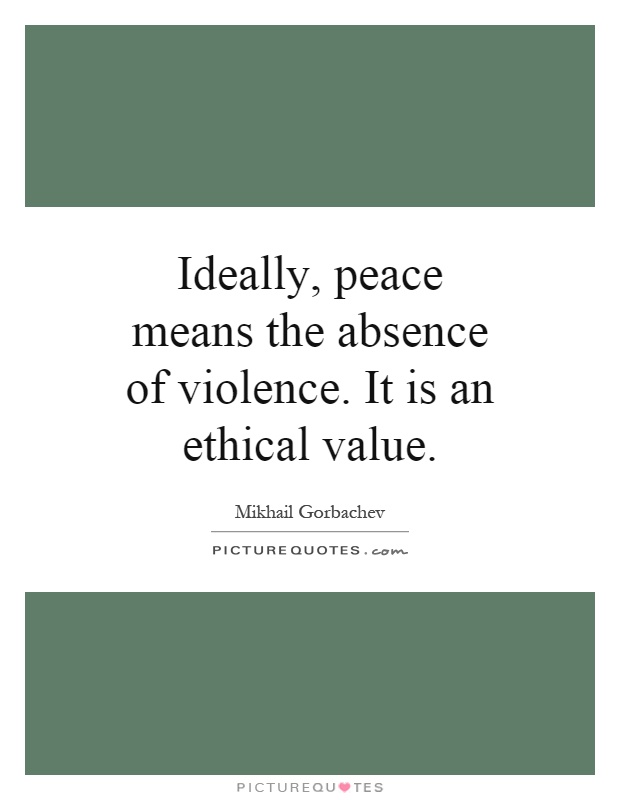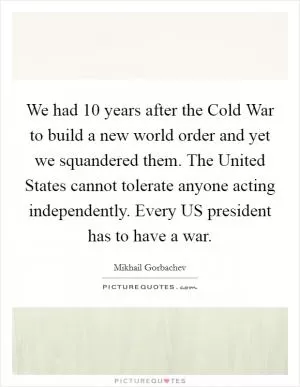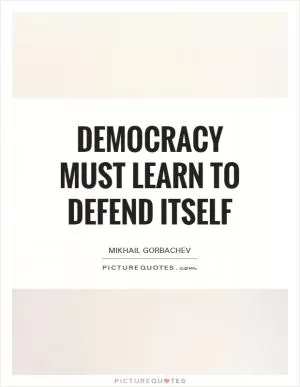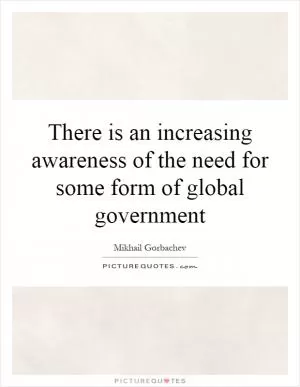Ideally, peace means the absence of violence. It is an ethical value

Ideally, peace means the absence of violence. It is an ethical value
Mikhail Gorbachev, the former leader of the Soviet Union, is often associated with the concept of peace due to his role in ending the Cold War and promoting disarmament. Gorbachev's approach to peace was rooted in the belief that violence and conflict were not only detrimental to individual societies but also to the global community as a whole. He believed that peace was not just the absence of war, but a fundamental ethical value that should guide all interactions between nations.Gorbachev's commitment to peace was evident in his policies and actions during his time in office. He pursued a policy of glasnost, or openness, which aimed to promote transparency and dialogue between the Soviet Union and the West. This approach helped to reduce tensions and build trust between the two superpowers, ultimately leading to the end of the Cold War.
One of Gorbachev's most significant contributions to peace was his commitment to nuclear disarmament. He signed several arms control agreements with the United States, including the Intermediate-Range Nuclear Forces Treaty, which eliminated an entire class of nuclear weapons. Gorbachev's efforts to reduce the nuclear threat were motivated by his belief that the use of such weapons would have catastrophic consequences for humanity.
Gorbachev's vision of peace was not limited to the realm of international relations. He also believed that peace required social and economic justice within societies. He implemented a series of reforms known as perestroika, which aimed to modernize the Soviet economy and promote greater political freedom. While these reforms ultimately led to the dissolution of the Soviet Union, Gorbachev remained committed to the idea that peace could only be achieved through a more open and democratic society.












 Friendship Quotes
Friendship Quotes Love Quotes
Love Quotes Life Quotes
Life Quotes Funny Quotes
Funny Quotes Motivational Quotes
Motivational Quotes Inspirational Quotes
Inspirational Quotes